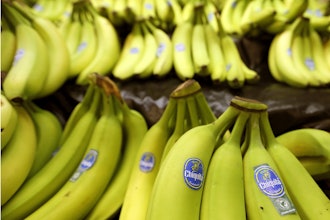
BERLIN (AP) — Scientists say damaging frost that caused significant economic loss to France's central winegrowing region this year was made more likely by climate change.
A report released Tuesday by researchers who study the link between global warming and weather events suggests that the intense April 6-8 frost in France was particularly damaging due to a preceding warm period in March.
The analysis conducted by the group World Weather Attribution used 132 climate models to simulate the impact of greenhouse gas emissions on temperatures in the vineyard-rich Champagne, Loire Valley and Burgundy regions of France. The group uses widely accepted methodologies for its work, but the study hasn't yet been independently reviewed.
The researchers from France, Britain, the Netherlands and Germany concluded that the warming caused by man-made emissions had coaxed the plants into exposing their young leaves when a blast of Arctic cold reached Europe in April.
“At the time these frosts hit, the buds had already burst,” said co-author Friederike Otto, associate director acting director of Oxford University’s Environmental Change Institute. “And so the frost did damage the vegetation quite a lot.”
The result was an estimated 2 billion euros ($2.4 billion) in economic damage described by French officials as “probably the greatest agricultural catastrophe of the beginning of the 21st century.”
The researchers calculated that while severe April frosts in the region have become less likely due to the 1.2 degrees Celsius (2.2-degrees Fahrenheit) of man-made global warming that's already occurred, the earlier growing season means such costly chills are now 60% more likely.
Co-author Robert Vautard, a senior scientist at the Institut Pierre-Simon Laplace in France, said a further warming to 2 C (3.6 F) above pre-industrial times would increase the probability of damaging frosts by a further 40%.
“In the future, we will not be concerned with April frosts, but with March frosts,” he said.






















